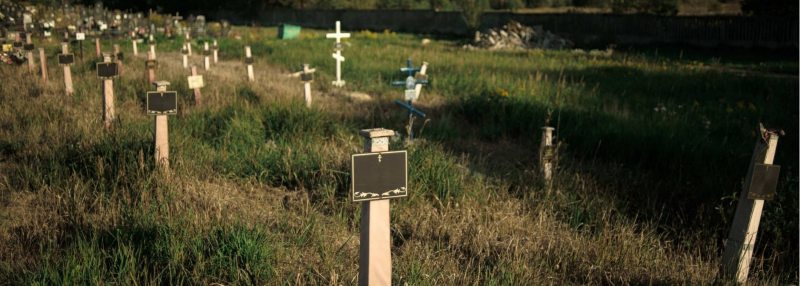Treatment of death row prisoners in Belarus
While on death row, convicts face a number of violations of their rights. During their one monthly visit with a family member (a right accorded under Article 174 of the Criminal Law Enforcement Code), they are forbidden from referring to detention conditions.
Testimonies collected during the FIDH-HRC “Viasna“ mission in June 2016 show a staggering difference in treatment ofconvicts before and after death sentencing. Prison staff are said to treat these convicts as if they are no longer “among the living“ and they are subjected to humiliating treatment during the entire period of detention until execution. Correspondence from prisoners at Pretrial Detention Centre No. 1 in Minsk, where death convictsare kept, is systematically withheld. These convicts are frequently denied lawyer’s visits.
Family members reported several instances of not being able to receive a power of attorney from their convicted relative to be able to submit an individual complaint to the UN Human Rights Committee. The cumulative outcome of these conditions is that individuals sentenced to death are kept in almost total isolation.
Since the date of the execution is kept secret from the convict and from the family, the inability to receive letters from convicted relatives constitutes a supplementary psychological pressure on families who have no other way of knowing if their family members are still alive. The fact that the detainee himself does not know the date of his execution results in psychological suffering as does the circumstance that a cell is shared by two convicts on death row. Human rights defenders received information on extreme psychological suffering of death convicts after execution of a cellmate. On at least one occasion, the guards forced a death row inmate to pick up the personal belongings of his fellow inmate after his execution.
Death convicts are forbidden to take walks. They are forced to spend all day in a 3 to 6 meter cell. When transferred outside the cell, including for visits and to go to court, they are forced to adopt a humiliating pose - head bent down towards the knees and handcuffed arms lifted behind the back. Even those whose death sentence has not yet entered into force are brought before the judge in the same pose by a convoy accompanied with dogs. In the courtroom they are kept in metal cages.
Until fairly recently, death convicts whose appeal was still pending a Supreme Court decision were forced to wear a robe with the inscription EMP, for “Exceptional measure of punishment,” despite the fact that legally the verdicts had not yet entered into effect.
These examples of convict mistreatment cannot be justified by reference to the need for security measures. The FIDH-HRC “Viasna“ report concludes that detention conditions of death convicts in Belarus amount to psychological and physical torture, which has reportedly led to a number of suicide attempts.
Family members also can not recover the bodies of executed detainees or even know where they were buried. The UN has already repeatedly stressed that such practices amount to torture and are in total contradiction with international human rights standards.
The personal affairs of those executed are not passed on to the families. On the other hand, human rights defenders received information on at least one case where shoes and uniform, which an inmate wore during execution, were sent to his mother without warning her in advance. The emotional effect of such an event has seriously affected her psychological state. Since the information about the parcel became public, family members of other death convicts fear receiving a same bundle.
No information on the death penalty, including the conditions of detention, is ever transmitted to the public by the authorities, which is a violation of Belarus’ international obligations. The information about death penalty application in Belarus is thus scarce and incomplete. There is no public control of respect for the rights and freedoms of death row prisoners, this information being classified by law.
Thus, even the exact number of people sentenced to death and executed in Belarus is not known. The only information reported by the Ministry of Justice of Belarus dates 2010 and concerns allegedly 245 persons executed during the period from 1994 to 2014.


